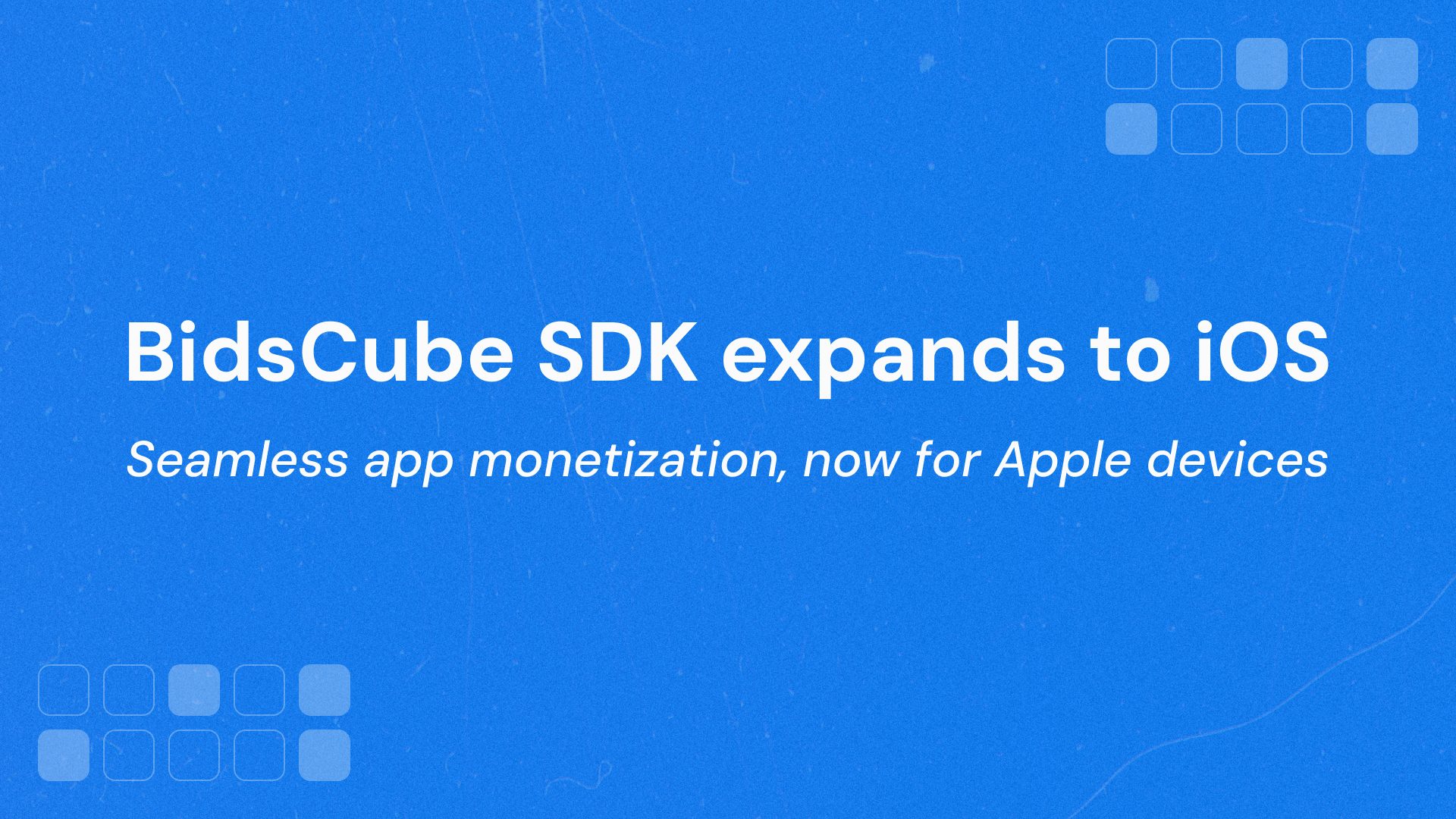BidsCube has expanded the capabilities of its SDK by adding native support for iOS. Until now, the SDK operated in Android environments, powering direct programmatic monetization for apps integrated with white-label SSPs or connected to BidsCube’s demand stack. With the addition of iOS support, the SDK now enables unified monetization across both major mobile platforms.
This update enables mobile publishers building on iOS to connect directly to our SSP instances or join the BidsCube Community — without relying on third-party mediation layers. For partners managing app inventory across platforms, it also simplifies deployment and reduces overhead by eliminating the need for separate SDKs or integration logic per OS.
One SDK, Full Control — Now for iOS Apps Too
The updated SDK allows developers to embed monetization logic natively into Swift or Objective-C projects. It supports banner formats, with rendering fully handled through native iOS view components. There are no pre-set placement rules or layout limitations — publishers retain full control over how and where ads are displayed.
All ad requests are initiated client-side and routed through configurable OpenRTB endpoints. Response handling, event tracking, fallback behavior, and creative rendering are fully transparent and do not depend on bundled third-party code.
Use Cases: SSPs, Community Access, and Beyond
With iOS support now available, the SDK becomes a more versatile tool for several partner types:
- SSP operators can onboard mobile publishers running iOS apps without needing additional SDK layers or iOS-specific logic
- App developers can monetize their iOS inventory by connecting directly to the BidsCube Community, tapping into verified demand sources with minimal configuration
- Ad networks and platform owners can now standardize their mobile monetization workflows and QA across both Android and iOS environments.
The SDK is suitable for high-scale apps, long-tail publishers, or niche verticals — and does not impose design restrictions or business model assumptions. It’s a technical integration layer, not a monetization opinion.
Lightweight, Configurable, Compliant
As with the Android version, the iOS-compatible SDK is lightweight and purpose-built for transparency and speed. It does not initiate background activity, store persistent identifiers, or trigger unsolicited requests. All logic is fully triggered and controlled by the host app.
The SDK is compatible with iOS 11.0 and higher, and requires no third-party dependencies. Developers define their own placement structure, request logic, and slot parameters. The SDK supports impression and click tracking events, which can be connected to in-app analytics or forwarded externally.
There’s no black-box behavior. Partners can debug traffic, monitor payloads, and adjust the SDK’s behavior according to their infrastructure or business needs. Integration examples for Swift and Objective-C are available, and teams already using the Android SDK will find the structure consistent and familiar.
What’s Next
While the current version focuses on banner support, the roadmap includes optional support for native formats, improved diagnostics, and integration wrappers depending on partner feedback. The core focus remains unchanged: give developers the ability to connect supply to demand without friction, lock-in, or bloated SDK layers.
Future updates will continue to follow the principle of lightweight, auditable, and production-ready code that can run inside any modern mobile app environment.
The SDK is available now. If you’re already working with BidsCube, your team can begin onboarding iOS publishers using the updated codebase. If you’re building your own monetization pipeline or looking to integrate into BidsCube Community, the SDK provides the technical entry point for bringing iOS inventory into the ecosystem.
To request implementation support or coordinate a technical review, contact us.

